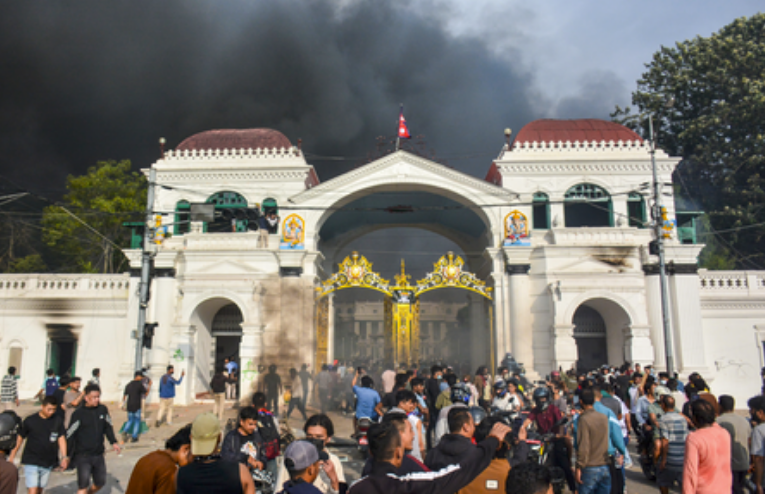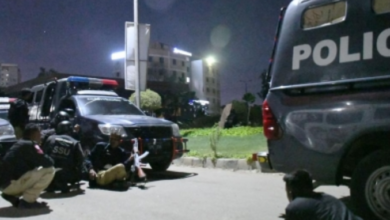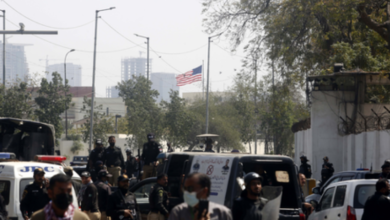Report Links Nepal’s Unrest to Regional Power Struggles, Debt, and Geopolitical Shifts

KATHMANDU– Nepal’s current wave of unrest is being driven not only by internal grievances but also by a mix of regional rivalries, foreign debt, and shifting diplomatic alignments, according to a report published Friday by Eurasia Review.
The report argues that the turmoil is symptomatic of deeper geopolitical currents in South Asia, warning that recurring protests and violence are unlikely to bring constructive change unless leaders learn from the region’s turbulent history. “In South Asia, history shows that setting streets ablaze rarely leads to constructive change. Yet, the region continues to see such upheaval, which only worsens domestic politics in the affected countries. Bangladesh has been a ‘terrible witness,’ engulfed by unrest, and now Nepal faces its own crisis,” the report noted.
Nepal’s political scene has remained unstable for years. Former Prime Minister K. P. Sharma Oli — who sparked controversy with remarks blaming an “Indian virus” for worsening the pandemic — resigned amid escalating protests after his government imposed a sweeping social media ban. In its aftermath, a youth-driven movement called the “Voice of Nepal’s Gen Z” has emerged, challenging entrenched political elites and raising questions about whether a digital blackout helped fuel a nationwide uprising.
The report also highlights Nepal’s shifting foreign policy. Traditionally tied closely to India through economic and social bonds, Nepal has in recent years edged closer to China. Oli’s government, the report said, mirrored Sri Lanka’s trajectory under Mahinda Rajapaksa, turning to Beijing for loans and infrastructure deals that risked creating a debt trap.
Although Beijing maintains it does not interfere in other nations’ politics, Chinese diplomats have reportedly met with Nepalese Communist Party leaders to shore up Oli’s leadership. In December 2024, Oli traveled to China before visiting India — breaking with long-standing diplomatic convention. During the trip, Nepal signed multiple agreements under Beijing’s “One Belt, One Road” initiative, aimed at transforming Nepal from landlocked to land-linked.
The report points to the $216 million Pokhara International Airport, financed by China Exim Bank, as a cautionary case. Echoing concerns raised over Sri Lanka’s Hambantota port project, critics warn that Pokhara Airport could represent both financial and strategic risk. Allegations that $71 million was siphoned off through corrupt deals between Chinese firms and Nepali politicians have deepened public anger, though investigations have stalled.
The analysis concludes that unresolved corruption and mounting dependence on Chinese loans are compounding Nepal’s instability, making its unrest part of a wider South Asian struggle over power and influence. (Source: IANS)





